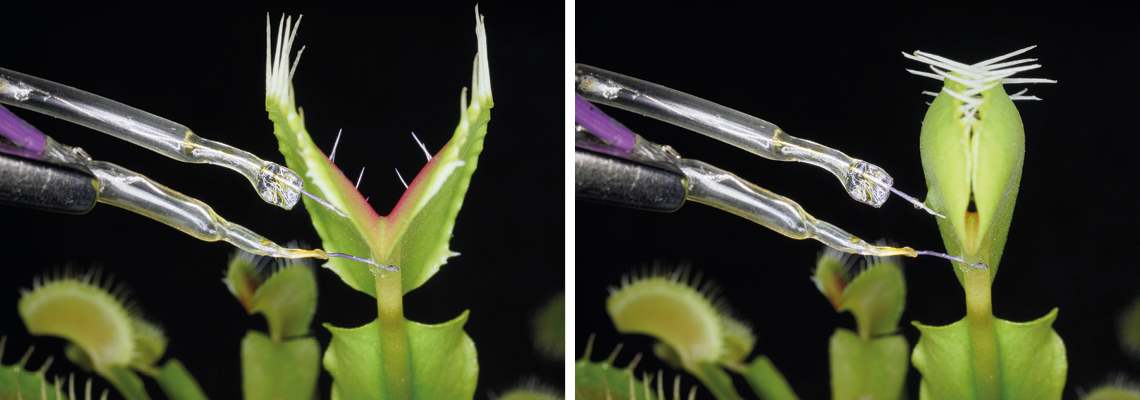Researchers at Linköping University in Sweden have developed an artificial neuron compatible with biological tissue and connected it to a living organism. The artificial neuron is composed of transistors printed on organic polymers. Inside the neuron, electrically charged particles (ions) are exchanged in a solution, creating the conditions needed to transmit an electrical impulse, just like a biological neuron. To demonstrate that the artificial neuron worked, a group led by Italian scientist Simone Fabiano, who specializes in organic nanoelectronics, connected it to a carnivorous plant: the Venus flytrap (Dioneia muscipula). Electrical impulses generated by the artificial neuron caused the flytrap to close, even when there was no insect inside (Nature Communications, February 22). “We chose the Venus flytrap so we could clearly show how we can steer the biological system with the artificial organic system and get them to communicate in the same language,” Fabiano said in a press release. It is expected that, in the future, prostheses and some types of robots will require integration with biological systems.
Republishbiotechnology
Artificial neuron controls carnivorous plant

The leaves of the Venus flytrap before (left) and after activation of the artificial neuron
Harikesh, P.C. et al.. Nature Communications. 2022